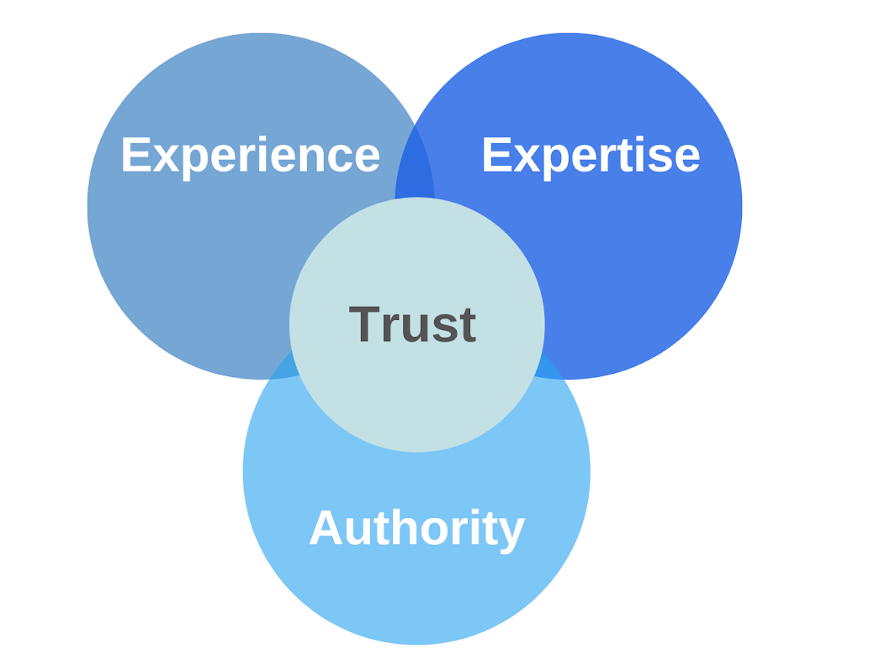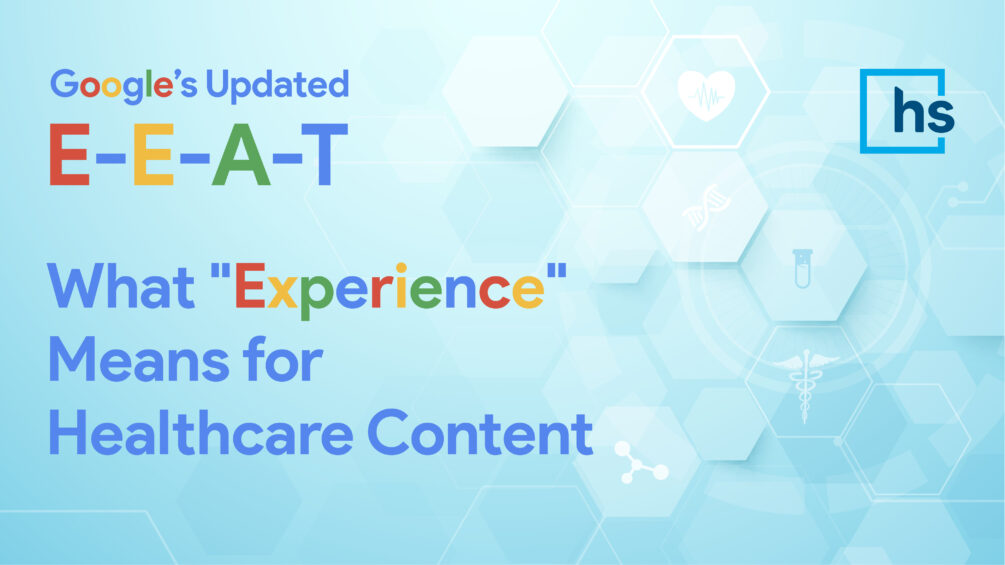Google’s Updated E-E-A-T: What “Experience” Means for Healthcare Content
Google has added an extra “E” to its Search Quality Evaluator Guidelines (SQEG), changing the well-known acronym from E-A-T to E-E-A-T.
The new E stands for “experience,” and here’s what this means for your business:
Experience, Expertise, Authoritativeness, and Trust (E-E-A-T)
Google defines experience as “first-hand or life experience for the topic.”
“Many types of pages are trustworthy and achieve their purpose well when created by people with a wealth of personal experience. For example, which would you trust: a product review from someone who has personally used the product or a “review” by someone who has not?”
For healthcare content that’s required to demonstrate the very highest level of E-E-A-T, Google has this to say:
“Very high E-E-A-T is a distinguishing factor for Highest quality pages. A website or content creator who is the uniquely authoritative, go-to source for a topic has very high E-E-A-T. A content creator with a wealth of experience may be considered to have very high E-E-A-T for topics where experience is the primary factor in trust. A very high level of expertise can justify a very high E-E-A-T assessment. Very high E-E-A-T websites and content creators are the most trusted sources on the internet for a particular topic.”
The idea here is that if it applies and makes sense, “experience” can be a valid trust factor that helps a page get a high rating for E-E-A-T.
The experience factor is now shining the light on content such as testimonials and social media content. Google is saying that even these content types have to be trustworthy and written by people with experience on the topic.
The main point here, however, is trust.

Experience for YMYL Topics
Web pages that share first-hand life experience on YMYL topics may elevate E-E-A-T scores better than those showcasing only high levels of expertise—provided the first-hand experience content is trustworthy, safe, and consistent with other high-authority websites.
Here are some healthcare examples from Google’s Search Quality Evaluator Guidelines:

The bottom line is that Google is constantly working to improve the user search experience.
The E-E-A-T principle was created to help people find useful and relevant information without wading through mountains of low-quality, unrelated, or unhelpful content first.
Healthcare consumers are savvier than ever. They want to feel empowered when choosing a medical practice, physician, treatment, or service. You can help make their decision easier by sharing legitimate, first-hand experiences (e.g., patient stories, testimonials, and reviews) and high-quality content from skilled professionals.
Layering experience-driven content into your website can mean the difference between a lead, conversion, or sale and lost business.
Related Articles:
Google E-A-T and Healthcare Content: How to Deliver the Quality Google Demands
AI Mode: How It’s Reshaping Content Visibility
How to Prepare for Google’s Upcoming User Experience Update
How to Optimize Your Website for Google’s Helpful Content Update









